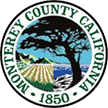Cal Interpreting & Translations (CIT) offers Youba interpreters and translators with legal, medical, and specialty experience, including criminal and civil matters, employee meetings, engineering, patent cases, labor disputes, immigration, and more.
CIT offers comprehensive Yoruba language services including interpretation, translation, and transcription, 24 hours a day, 7 days a week, worldwide. Our interpreters and translators are native speakers who have been screened, certified, provided credentials, field-tested, and kept up to date with developments in both English and Yoruba languages through means such as lectures, conferences, and travel. Cal Interpreting & Translations’ Yoruba language interpreters and translators possess in-depth knowledge of the Yoruba language, as well as of the culture and history of the Yoruba people, allowing them to provide informed and complete interpretation and translation.
Originally an oral tradition, Yoruba is spoken by over 40 million people in West Africa. Yoruba is the most widely spoken African language outside of Africa. Yoruba is spoken mainly in Benin and Nigeria, as well as other parts of Africa, with diaspora communities thriving in parts of Europe and the Americas. Within Africa, significant Yoruba communities are also found along the Ivory Coast, Ghana, Liberia, and Sierra Leone.
The Yoruba people make up over 20% of the population of Nigeria, making them one of the largest ethnic groups in Africa. Within it’s Niger-Congo language family, Yoruba has the largest number of native speakers.
Yoruba diaspora are generally grouped into two different groups. One group is comprised of more recent migrants, many of whom moved to the US and the UK during the period from 1960-1980. This group migrated largely due to political and economic changes. The second group dates back much further, to the Atlantic slave trade. The Yoruba people from this group migrated to countries such as Cuba, Venezuela, the Dominican Republic, Jamaica, and Brazil.
Yoruboid is a group or ‘megagroup’ of 14 dialects and languages. Yoruba is the mostly widely spoken language in this group, which is also made up of languages such as Itskeri and Igala.
The Yoruba dialect continuum itself is quite expansive. The dialects are grouped into five main dialect regions: Northwest, Northeast, Central, Southwest, and Southeast. Northwest Yoruba (NWY) is made up of Egba, Ibadan, Egbado/Yewa, Ọyọ, Western Ogun, and Lagos/Eko. Northeast Yoruba (NEY) dialects are Yagba, Owe, Ijumu, Oworo, Gbede, and Abunu. Central Yoruba (CY) is made up of the dialects Igbomina, Ijesha, Ifẹ, Ekiti, Akurẹ, and Ẹfọn. Southeast Yoruba (SEY) is comprised of Ikale, Ilaje, Ondo City, Ọwọ, Idanre, Akoko, Remo, and Ijẹbu, while Southwest Yoruba is Ketu, Awori, Sakété, Ifè (Togo), Idasha, and aIpokia/Anago.
Literary Yoruba is called Standard Yoruba, Yoruba koiné, or common Yoruba, and is itself a separate dialect in the dialect cluster.
The Yoruba religion is composed of all the traditional beliefs, spiritual philosophies, and practices of the Yoruba people.
Lucumi is a collection of vocabulary, or lexicon, derived from Yoruba used in Santeria religion in Cuba. Lucumi is influenced by Spanish pronunciation and phonetics and to a lesser degree some Bantu languages. Lucumi is categorized as a ‘spirit language’, since the Yoruba descendants in these communities (descendants of Yoruba people from the Atlantic slave trade era) no longer speak Yoruba fluently, and have no understanding of grammar or intonation. Yoruba is a tonal language, meaning that without proper intonation, much of the language is incomprehensible. However, Santeria practitioners still use Lucumi in their liturgy, much as modern-day Christians use Greek or Aramaic words within their hermeneutics, without actual knowledge of linguistic context.
The Yoruba kingdom was established in the 8th century BC, making it one of the earliest African kingdoms. As far back as the 11th century BC, the Yoruba were the predominant cultural force in south Nigeria.
The Yoruba were among the most urbanized groups in Africa. Hundreds of years prior to British colonization the Yoruba lived in highly structured cities and well-maintained residences. Throughout many points in history, the Yoruba had the largest populations of any African city, which remains true to this day.
Yorubaland is the cultural region in West Africa of the Yoruba people, including modern-day Nigeria, Benin, and Togo. This space contains over 55 million people, the majority of whom are Yoruba. Nearly every Yoruba settlement traces its lineage back to the princes of Ile-Ife in Nigeria and is regarded as the cultural and spiritual homeland of Yoruba.
The golden age of Yorubaland was between 1100 and 1700 when the kingdom underwent an artistic and ideological renaissance.
In 1882, European colonization threatened the Yoruba kingdom and people, as British settlements become more and more commonplace. In 1960 Yorubaland was absorbed into the Federal Republic of Nigeria.
Today, Yorubaland is one of the most highly populated ethnic homelands in Africa. It is a very urbanized area, with a high population density, though, like Africa, has a large rural population as well.


No matter what your needs may be, we can and are ready to assist you now. We have translators and interpreters standing by 24/7.

CIT's interpreter is such a rockstar, and it’s so great to have him as a lead interpreter for our Board meetings. About Our Interpreters 
Thank you for always being able to handle emergency interpreting assignments with ease. About Urgent Requests 
Thank you for always being able to handle emergency interpreting assignments with ease. About Urgent Requests 
Your translation rates are more competitive than other language service providers I used in the past. About Pricing 

Professionalism matters at CIT. We respond to request inside 24 hours.







